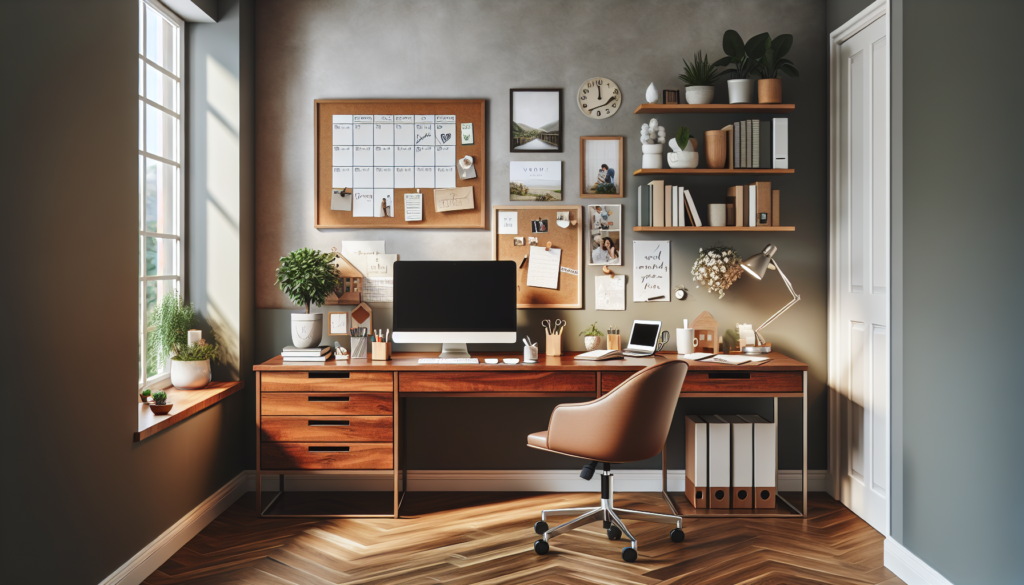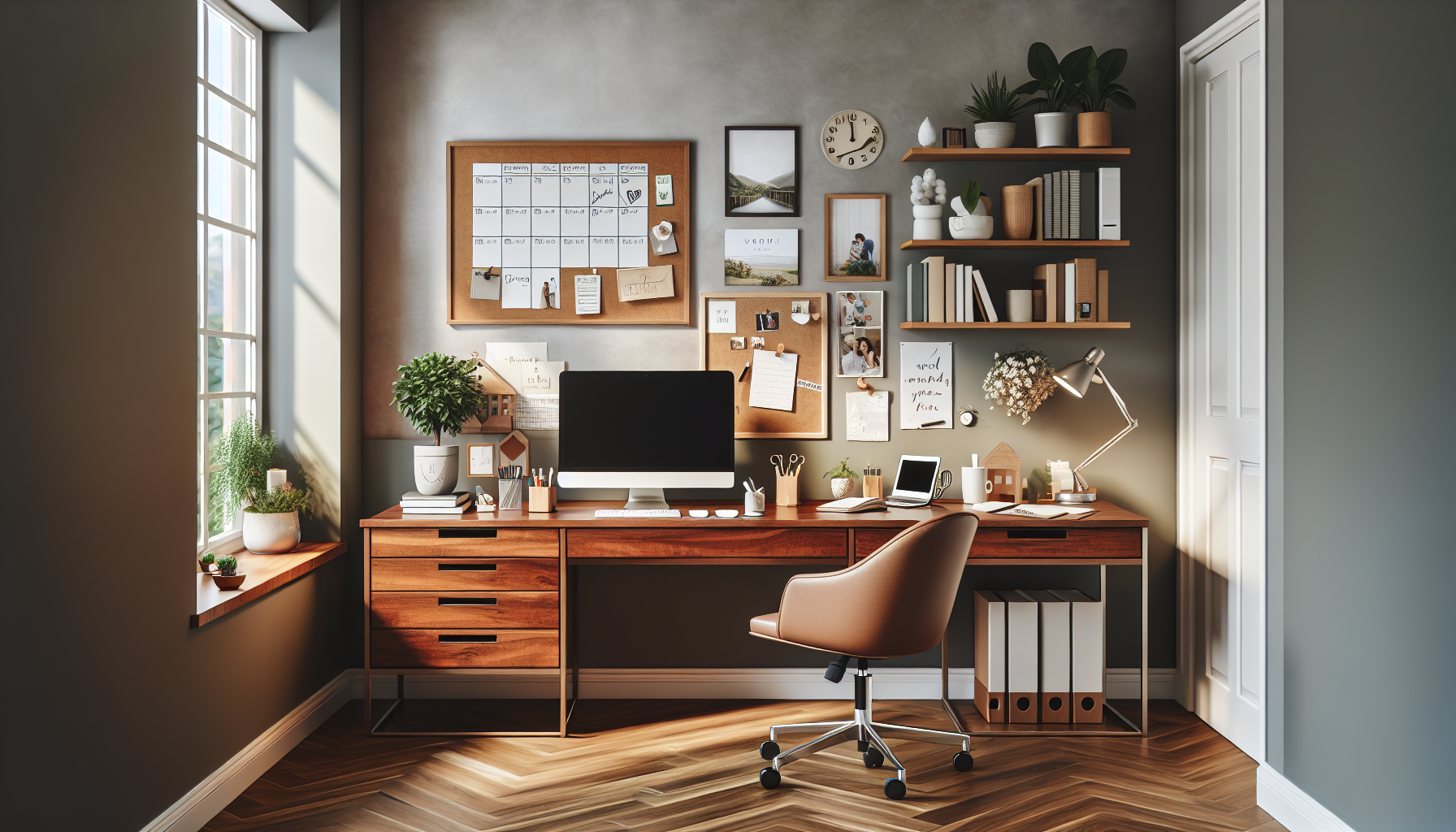Imagine a space where you can tackle your job with ease, without the distractions and confines of a traditional office. A home office offers the perfect solution, granting you the freedom to create a personalized workspace within the comfort of your own home. It can be a cozy corner, an entire room, or even a converted garage. Whether you’re an entrepreneur, freelancer, or someone who works remotely, a home office provides the ideal environment to boost productivity and strike a balance between work and home life. In this article, we will explore the true definition and significance of a home office, as well as the benefits it brings to your professional and personal life.
Definition of a Home Office

Overview
A home office is a designated space within a person’s residence that is used for conducting professional or business-related activities. It serves as a dedicated workspace where individuals can work remotely, pursue entrepreneurial ventures, or engage in any work-related tasks from the comfort and convenience of their own home.
Purpose
The purpose of a home office is to provide a productive and efficient environment for individuals to carry out their professional responsibilities. It offers the flexibility of working from home, allowing individuals to save time and energy that would otherwise be spent commuting to a traditional office space. A home office also provides the opportunity for individuals to create a personalized working environment that suits their specific needs and preferences.
Location
Choosing the appropriate location for a home office is crucial for creating an optimal work environment. Ideally, it should be in a quiet and secluded part of the house, away from distractions and interruptions. A spare bedroom, a converted attic, or a basement can serve as suitable locations for setting up a home office. It is essential to choose a space that provides adequate natural light and sufficient ventilation. Additionally, considering the proximity to amenities such as washrooms and a kitchen can enhance the convenience and functionality of the home office.
Design
The design of a home office plays a significant role in productivity and overall satisfaction. It should be a space that is conducive to concentration and focus, while also reflecting the individual’s personal style and taste. Consider incorporating ergonomic furniture, such as an adjustable chair and a height-adjustable desk, to ensure proper posture and reduce the risk of discomfort or injury. Utilize colors and decor that inspire creativity and motivate productivity. Creating a clutter-free and organized workspace is crucial for efficient workflow.
Equipment and Supplies
Equipping a home office with the necessary tools and supplies is essential for carrying out professional tasks effectively. This may include a reliable computer or laptop, a printer, a scanner, and a stable internet connection. Additionally, stationery items such as pens, paper, notebooks, and folders should be readily available. Depending on the nature of the work, specialized equipment or software may also be required. Adequate storage solutions, such as filing cabinets or shelves, can help keep the office organized and prevent unnecessary clutter.
Privacy and Security
Maintaining privacy and ensuring the security of sensitive information is of utmost importance in a home office. Establishing protocols to protect digital data, such as using strong passwords and maintaining regular backups, is crucial. Moreover, considering physical security measures like installing a lock on the office door or using a privacy screen for computer monitors can help safeguard confidential information. It is essential to establish boundaries with family members or roommates to minimize interruptions during work hours and maintain a professional atmosphere.
Work-Life Balance
One of the key advantages of a home office is the potential to achieve a better work-life balance. It allows individuals to have more flexibility in managing their time and incorporating personal commitments into their daily routine. However, it is crucial to establish clear boundaries between work and personal life to avoid overworking or constantly feeling “on-call.” Setting fixed working hours, taking regular breaks, and separating the physical workspace from the rest of the house can contribute to a healthy work-life balance.
Tax Benefits
Operating a home office can also provide certain tax benefits for individuals who qualify. Depending on the jurisdiction, individuals may be eligible for deductions on expenses related to the home office, such as rent or mortgage interest, utilities, and office supplies. However, it is recommended to consult with a tax professional or accountant to understand the specific regulations and requirements for claiming these deductions accurately.
Flexible Working Options
With the rise of remote work and flexible working arrangements, having a home office enables individuals to take advantage of these options. It allows for greater autonomy and control over one’s work schedule, providing the opportunity to work during preferred hours or accommodate personal commitments. Additionally, a home office can be beneficial for individuals who have difficulty commuting or those who require a quiet and personalized environment to maximize productivity.
Advantages and Disadvantages
Like any other working arrangement, a home office has its share of advantages and disadvantages. On the positive side, it offers convenience, flexibility, and cost savings by eliminating commuting expenses. It allows for customization and personalization of the workspace to promote productivity. A home office also provides a more relaxed and comfortable working environment, reducing workplace stress. However, some challenges may arise, such as potential distractions, isolation, and difficulty separating work and personal life. It requires self-discipline and effective time management skills to avoid procrastination or overworking. Additionally, individuals might miss out on the social interactions and collaborative nature of traditional office environments.
In conclusion, a home office provides individuals with the opportunity to create a tailored and efficient workspace within their own homes. It offers numerous benefits, including flexibility, cost savings, and improved work-life balance. However, careful consideration and planning are necessary to overcome potential challenges and ensure a productive and fulfilling working experience in a home office.
